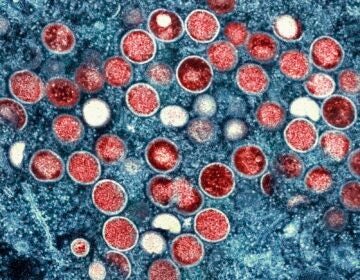First case of monkeypox found at University of Delaware days before classes start
Just days before the start of the new semester, University of Delaware officials confirm the first case of monkeypox on the Newark campus.

University of Delaware's campus (U Del.)
A University of Delaware employee is the first person connected to the school to be diagnosed with monkeypox.
The university isn’t identifying the individual but says they’re isolating and recovering at home. UD is working with the state Division of Public Health to notify those who may have been in close contact with that person.
School leaders sent an email to faculty, staff, and students on Wednesday to make them aware of the arrival of monkeypox among the campus community.
Earlier this month, UD launched a website offering up-to-date information about monkeypox and recommendations about how students and faculty can stay safe.
That message from school leaders stressed how monkeypox is different than COVID-19. “It does not spread before symptoms start, by casual contact or by being in the same space as someone. Transmission requires prolonged intimate face-to-face contact or skin-to-skin contact,” the school’s post said.
The arrival of monkeypox at UD comes as students start to move on to campus this weekend ahead of the start of classes on Tuesday, Aug. 30. Students will be required to wear masks on campus for the first two weeks in an effort to stop the typical start-of-semester COVID spike.
Earlier this week, the state announced six new cases of monkeypox, bringing the state’s total to 17. Three of the new cases were men in New Castle County, the other three were men in Sussex.
None of those cases are related to each other and each patient reported recent “high-risk intimate contact prior to onset” of symptoms. One of the patients also reported recently traveling out of state.
The state just expanded access to the monkeypox vaccine. Last week, providers who offer HIV PreP started administering the monkeypox vaccine to patients. This week, access was further expanded to include those engaging in high-risk activities, including sexual practices, that increase the risk of exposure to monkeypox.
WHYY is your source for fact-based, in-depth journalism and information. As a nonprofit organization, we rely on financial support from readers like you. Please give today.






